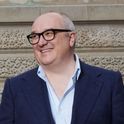From Dorian Gray to Indiana Jones’s Holy Grail-obsessed foe in The Last Crusade, attempts to cheat death often don’t end well. That hasn’t stopped people trying. Tech billionaires Jeff Bezos, Mark Zuckerberg and Sergey Brin are among those investing heavily into anti-ageing research, exploring options like “senescent cells” and “cellular rejuvenation programming”. (The same people who hope to stave off death are also masters of avoiding life’s other certainty—taxes.)
Eternal life is “a scientific possibility”, says Nobel prize-winning scientist Venki Ramakrishnan, though it remains as unlikely as it has ever been.
Extending lifespans is far more achievable, though. “Our life expectancy today is almost twice that of people 150 years ago,” Ramakrishnan tells me. “I wouldn’t be surprised if advances allowed people to live [on average] to 100. Understanding what processes break down and lead to ageing and death is the first step to being able to do something about it. Many biologists feel if we’re able to tackle the fundamental causes of ageing, there’s no reason we can’t breach that current natural barrier of around 120 years.”
Billionaires are not alone in wanting to live longer. “We’re all programmed to want to live,” says Ramakrishnan. “If we were offered a pill to make us live 10 extra years of healthy life, most of us would take that. But what individuals choose may not necessarily be good for society.”
That’s the big issue. Many countries, from Japan to the UK, are already struggling to cope with ageing populations. Increasing lifespans without addressing health issues related to ageing would create huge populations of people with mobility problems and diseases, such as dementia. The number of people experiencing dementia globally is expected to grow from 50m people today to 139m by 2050. “Who’s going to take care of all these people?” Ramakrishnan asks. “Dementia is one of the most difficult problems to tackle. Most cells in the brain don’t regenerate, unlike skin cells or blood cells. When things go wrong in the brain, they’re really hard to correct.”
The molecular biologist is of the same thinking as Elon Musk, who’s reportedly avoided investing in anti-ageing research because it would “cause asphyxiation of society”. “You will have a stagnant population and a stagnation of ideas and social change,” Ramakrishnan says.
On current trends, there would also be an abundance of US presidential candidates (Biden is 81 and Trump 77, the oldest candidates in US history). “The longer people are around, they accumulate more wealth, political power and stronger networks. We see this in science, too. It works against the younger generation. What’s going to happen to turnover? You have to balance the rights of people to stay productive and have a purpose in life as they get older with the rights of younger people.”
Born in Tamil Nadu, India in 1952 to two science professors, Ramakrishnan grew up in Gujarat before moving, aged 19, to the United States. At Yale University, he began his research into the structure of ribosomes (cellular machinery responsible for making proteins) that won him the Nobel.
He moved to England in 1999, where he runs a research group at the Medical Research Council’s Laboratory of Molecular Biology (LMB) in Cambridge. Receiving Nobel Prize in Chemistry in 2009 was “a validation‚ it means the community values your work as important.”
Ramakrishnan served as president of the Royal Society in London from 2015 to 2020, spanning both Brexit (“There’s no benefit from Brexit to science—it makes our work harder”) and the start of the Covid-19 pandemic. A fellow of Trinity College, Cambridge, he was knighted in 2012 and appointed to the Order of Merit by King Charles in 2022.
His new book, Why We Die, argues that the clearest way to extend lifespans is to eat healthily, avoid stress and sleep well. “People have made tremendous advances in understanding what exactly sleep does to our cells, molecules and tissues,” he says. He himself now takes “anti-ageing medicines”, including treatments for blood pressure, to keep him healthy and alive for longer.
With his 72nd birthday just around the corner on the day we’re speaking, I ask him: If there was a fountain of eternal youth, would he drink from it? “I’d like to say I wouldn’t, because it’s not good for society to have people hanging around forever. But there’s the old joke: ‘Who would want to live to be 100? Someone who’s 99.’”
Why We Die: The New Science of Ageing and the Quest for Immortality by Venki Ramakrishnan is published by Hodder (£25)












